Syria air strikes: Government ministers call Labour MPs for support
- Published
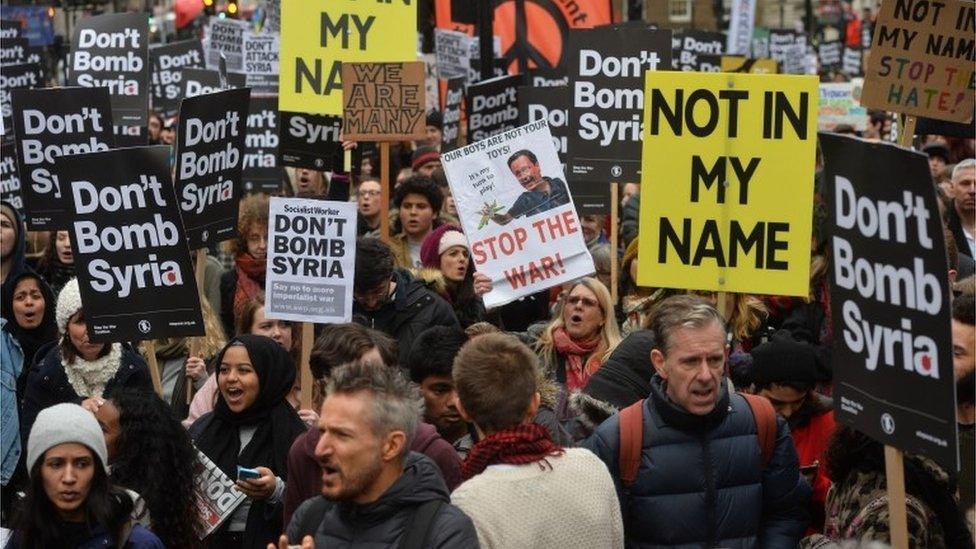
Protesters gathered outside Downing Street to oppose plans for air strikes in Syria
Government ministers are phoning opposition MPs in a bid to build support for Syrian air strikes, as anti-war activists hold demonstrations.
Stop the War protesters staged a sit-in outside Downing Street.
The foreign and defence secretaries are among those contacting MPs as David Cameron considers calling a Commons vote on extending strikes next week.
Jeremy Corbyn has written to Labour MPs saying he opposes action, but some in his shadow cabinet support strikes.
'Do the right thing'
The prime minister has said bombing so-called Islamic State militants in Iraq will make the UK safer.
However, Diane Abbott, Labour's shadow international development secretary, told the crowd in Westminster: "David Cameron has not made the case for bombing Syria.
"At this point, I do not believe that bombing Syria will make it safe, any more than bombing Iraq made Iraq safe, bombing Afghanistan made Afghanistan safe and bombing Libya made Libya safe."
She said she hoped Labour MPs will "do the right thing".
Actor Mark Rylance joined Stop The War protesters in central London
Where do UK parties stand on military action?
Can British forces make a difference in Syria?
'Don't bomb Syria' protest in London: Your pictures
Actor Mark Rylance also took to the stage and said: "I fear we may be playing right into what they [IS] want - bombing more civilians - and therefore helping them recruit more desperate young men."
He was among a number of high-profile people, including film-maker Ken Loach and comedian Frankie Boyle, to sign a letter delivered to Downing Street.
Smaller protests at 20 locations across the country have also been held.
Mr Corbyn has faced warnings of resignations after he wrote to Labour MPs rejecting Mr Cameron's case for military action.
Sending out a survey to party members, he asked for their views and urged them to respond by the start of next week.
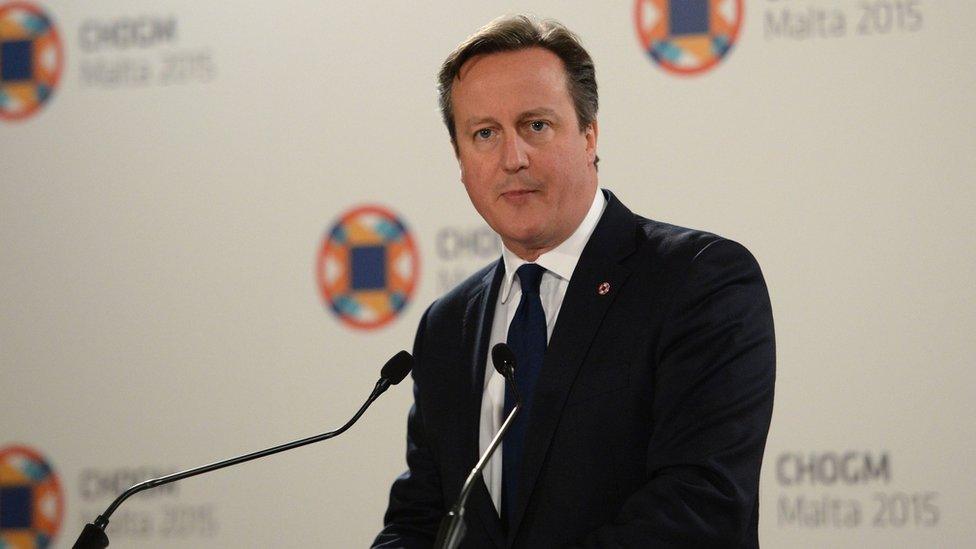
Speaking in Malta, where he is attending a Commonwealth Heads of Government Meeting (Chogm), Mr Cameron said the government was seeking to reassure "all sides" of the Commons over air strikes.
He said "carefully thought-through and effective action" was required against IS.
Some MPs still needed reassurance over the "vital" reconstruction work required in Syria and around the military strategy to target IS - and not other forces in Syria - the PM added.
'Above party politics'
In Parliament on Thursday, Mr Cameron set out what he called the "compelling case" for extending air strikes against IS from Iraq into Syria.
Shadow chancellor John McDonnell said MPs should be allowed to make their "own judgement".
While making clear his personal opposition to the extension of air strikes, Mr McDonnell said the "horrendous mistake" of the Iraq war had been partly due to MPs being "whipped and threatened and pushed" into supporting "something many of them did not believe in".
Speaking on BBC Radio 4's Any Questions, he said: "There shouldn't be any party discipline on matters like this. You should follow your own judgement on what you think is best for the constituency and the country."
"There are some issues like going to war that should be above party politics", he said.
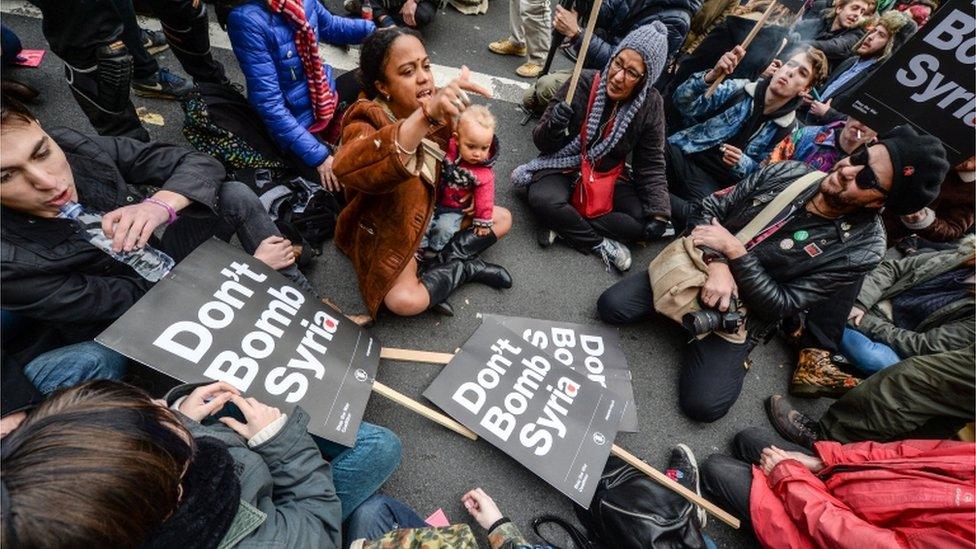
Demonstrators stopped traffic during the rally and sat down in the road outside Downing Street.
Labour deputy leader Tom Watson said shadow cabinet members who disagreed with Mr Corbyn's position would not resign.
He hinted a free vote - allowing the shadow cabinet and Labour MPs to vote as they please - might be the best way out of the situation.
Foreign Secretary Philip Hammond said there was growing "momentum" among MPs in support of extending RAF air strikes against IS in Syria.
Mr Hammond said ministers would give Tory MPs the chance to reflect on Mr Cameron's case before deciding whether to press for a Commons vote.
- Published27 November 2015
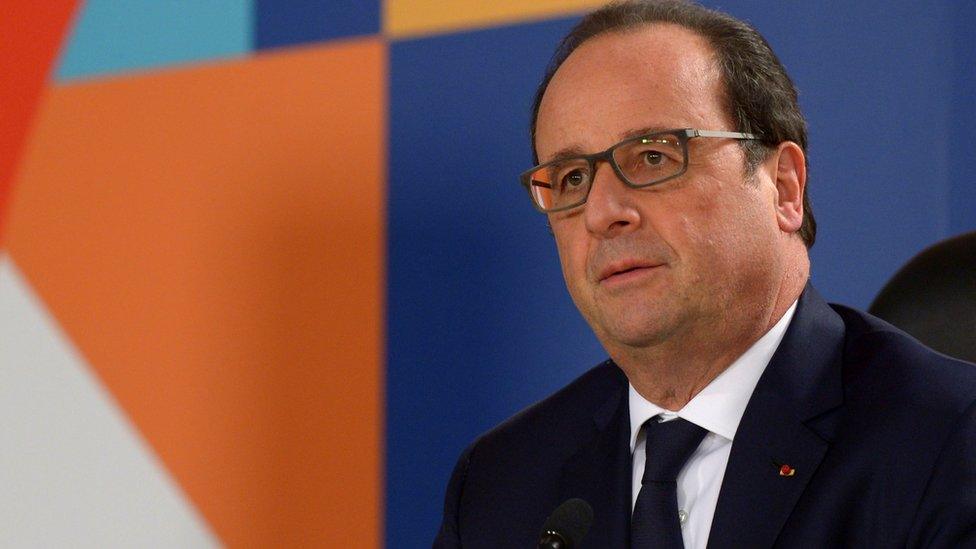
- Published1 December 2015
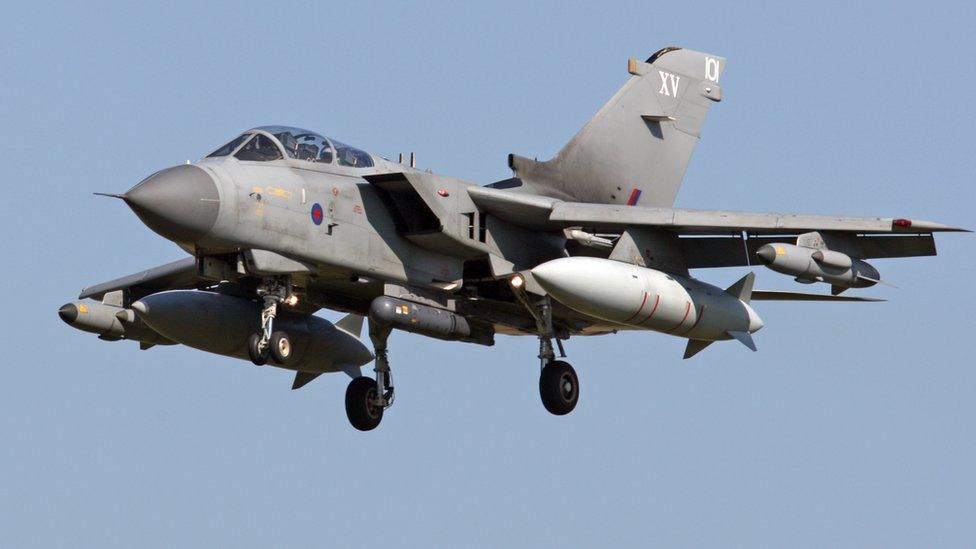
- Published27 November 2015
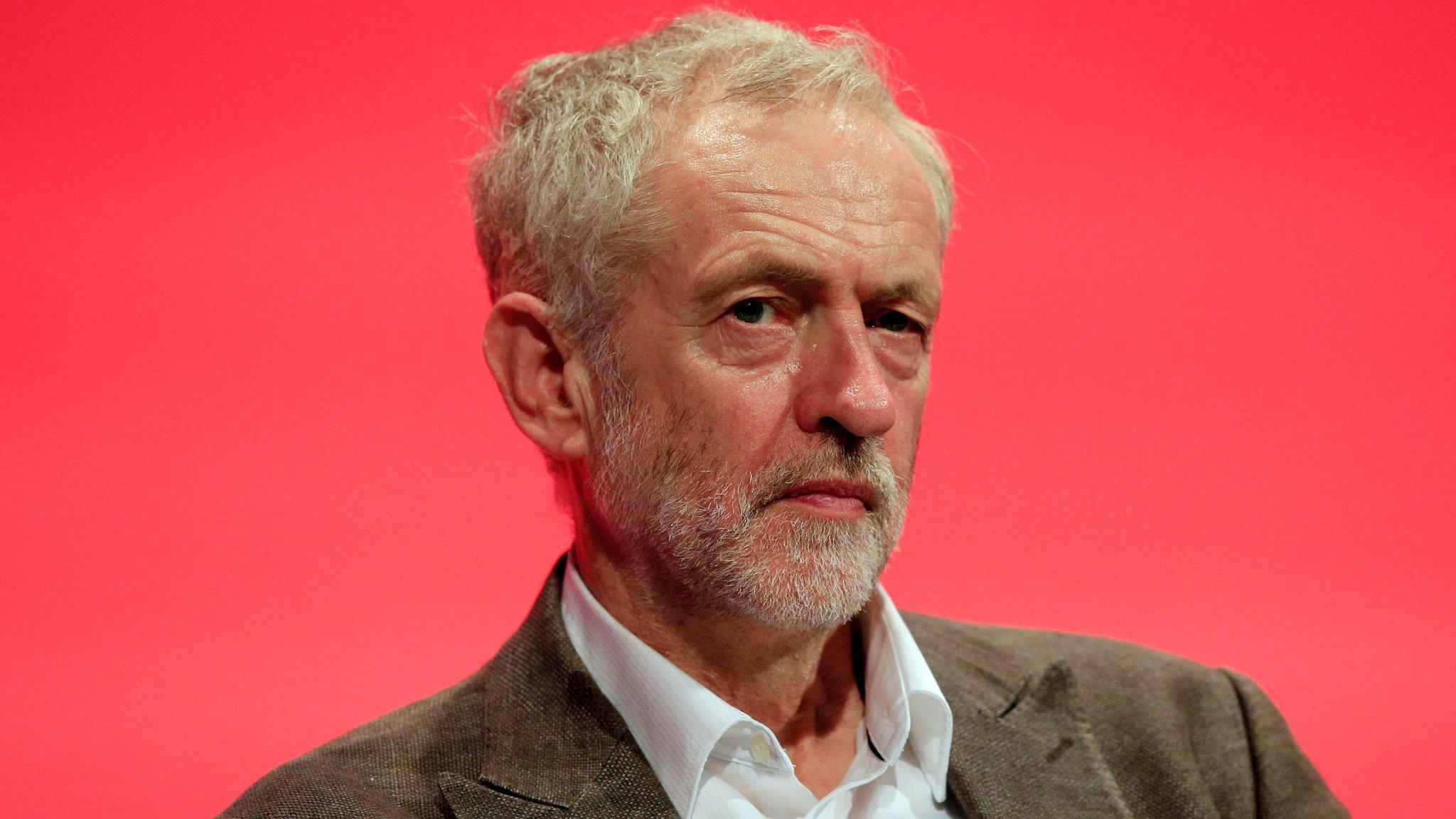
- Published26 November 2015
- Published26 November 2015